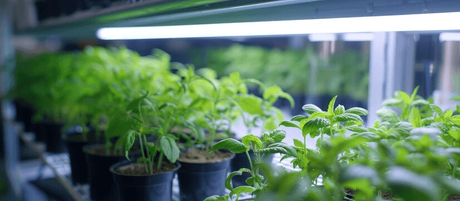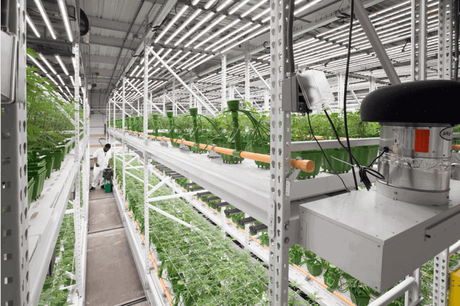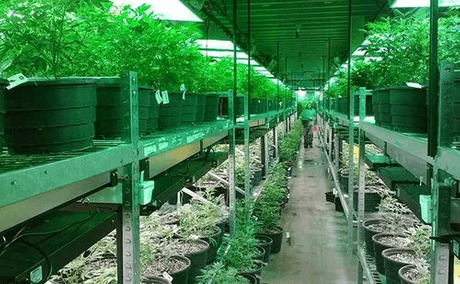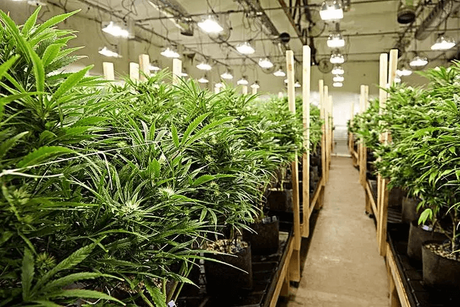Indoor vertical farming is a modern agricultural technique that maximizes space and efficiency by growing crops vertically in stacked layers or shelves. This method offers several advantages over traditional farming, making it an attractive option for urban areas and regions with limited arable land. Here are some of the advantages of indoor vertical farming:
Space Utilization: Vertical farming allows for the efficient use of space. By growing crops in vertical stacks or shelves, the available growing area can be significantly increased compared to traditional horizontal farming. This is particularly beneficial in urban environments, where land is limited and expensive.
High Crop Yields: Vertical farming provides the potential for higher crop yields per square meter of growing area compared to conventional farming methods. By optimizing lighting, nutrient delivery, and environmental conditions, plants can grow faster and produce more harvestable crops throughout the year. This can help meet the increasing demand for fresh produce in densely populated areas.
Year-round Production: Indoor vertical farming eliminates the constraints of seasonality and weather conditions. With controlled environments, growers can create optimal conditions for plant growth regardless of the external climate. This enables year-round production, ensuring a consistent and reliable supply of fresh produce without dependence on seasonal variations.
Water Efficiency: Vertical farming systems typically use recirculating hydroponic or aeroponic systems, which can be highly water-efficient compared to traditional soil-based agriculture. Water is recycled and reused within the system, reducing overall water consumption. Additionally, vertical farming allows for precise irrigation control, minimizing water waste.
Reduced Dependency on Pesticides: Indoor vertical farming provides a controlled environment that can help minimize pest and disease infestations. The controlled environment reduces the need for chemical pesticides and allows growers to implement integrated pest management strategies, such as biological controls or physical barriers, to protect crops. This can result in cleaner and safer produce.
Energy Efficiency: Although indoor vertical farming requires artificial lighting and environmental control systems, modern technologies have made significant strides in energy efficiency. LED grow lights, for example, are highly energy-efficient and can be tailored to specific crop needs. Additionally, advanced climate control systems can optimize energy usage by adjusting temperature, humidity, and ventilation as needed.
Reduced Transportation Costs and Emissions: Vertical farms located in urban areas can reduce the distance between the farm and consumers. This helps decrease transportation costs and carbon emissions associated with long-distance transportation of produce. The proximity of vertical farms to urban centers can also result in fresher produce reaching consumers quickly.
Control over Growing Conditions: In vertical farming, growers have precise control over various environmental factors, including light intensity, duration, and spectrum, temperature, humidity, CO2 levels, and nutrient delivery. This level of control allows for tailored cultivation practices, ensuring optimal plant growth, quality, and nutritional value.
Diversification of Crop Types: Vertical farming enables the cultivation of a wide range of crops, including leafy greens, herbs, strawberries, microgreens, and even certain fruiting crops like tomatoes and cucumbers. The flexibility of vertical farming systems allows growers to experiment with different crop varieties and expand their product offerings.
Educational and Research Opportunities: Vertical farming provides a platform for education and research in the field of agriculture. It offers opportunities for studying plant biology, optimizing growing techniques, developing new varieties, and exploring sustainable food production methods. Vertical farms can serve as educational centers, inspiring the next generation of farmers and scientists.
Indoor vertical farming has the potential to revolutionize food production by addressing the challenges of limited space, resource efficiency, and climate resilience. With ongoing advancements in technology and cultivation practices, vertical farming is becoming increasingly viable, contributing to sustainable and localized food systems.
 English
English








